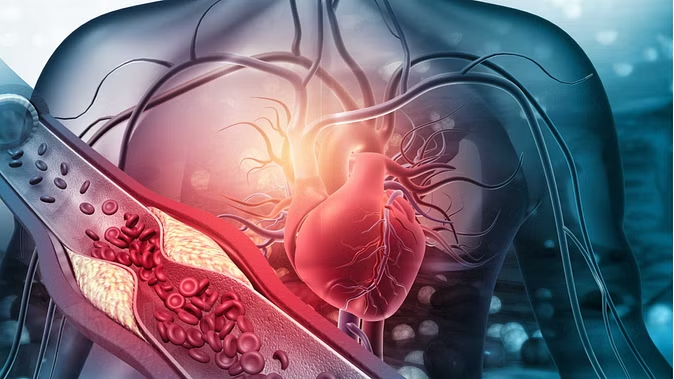Heart diseases are one of the leading causes of death worldwide. According to the report of the British Health Foundation, every 1.5 seconds a person dies due to a heart attack. Globally, cardiovascular and circulatory diseases caused the deaths of an estimated 9.8 million men and 9.2 million women in 2019. After the Corona epidemic, the number of heart attacks and deaths due to it has increased even further. Health experts advise all people to keep taking heart-healthy measures.

Most studies show that most cases of heart disease and heart attack are seen due to disturbances in lifestyle and diet. In another similar study, researchers found that excess of certain vitamins in the body can also cause problems with heart disease and heart attack.
Niacin (vitamin B-3) is one of them, excess of which is dangerous for heart health. Researchers said that people who consume excessive amounts of Vitamin B supplements containing niacin may have an increased risk of heart disease.
Risk of heart disease due to excess niacin
However, niacin is also as essential for our health as other nutrients. It is considered helpful in improving blood circulation. All types of B vitamins are water-soluble, which means the body does not store them. You can meet all of your body's B3 needs through diet.
However, a study led by researchers at the Cleveland Clinic found that people with diets high in niacin may have a higher risk of heart disease and its causes. An estimated one in four people worldwide may have niacin levels higher than the recommended amount.
Excess of niacin can damage the arteries
It is important to know here that Niacin is also called Vitamin B3 or Nicotinic Acid. In this study published in the journal Nature Medicine, scientists found that when our body breaks down niacin, it creates a bioproduct called 4PY, which can cause inflammation in the body's circulatory system. This inflammation damages the blood vessels, leading to atherosclerosis buildup over time.
Atherosclerosis is the problem of plaque formation in the inner layer of the arteries, which causes the arteries to become thick and hard. In this condition, the risk of stroke, heart attack, and other heart problems increases significantly.
What do the researchers say?
Researchers say we all should avoid consuming any type of vitamin supplements without any medical advice. Vitamin B3 can be easily obtained for the body through diet.

"We did this study because we suspected that many unknown risk factors for heart disease may exist," says study lead author Stanley Hazen, a researcher at the Lerner Research Institute at the Cleveland Clinic. This research clearly shows us how disturbances in diet affect it.
What is the conclusion of the study?
In the conclusion of the study, researcher Prof. The effects of niacin have always been somewhat contradictory, Hazen says. Our findings may help explain this paradox. Although it is not that we should stop consuming niacin completely, but the consumption of its supplements should be avoided. There is a risk of taking any vitamin supplement on your own which may inadvertently lead to excess of it in the body.
For the body to remain healthy and function properly, all vitamins must be consumed in balanced quantities.
(PC: iStock)










